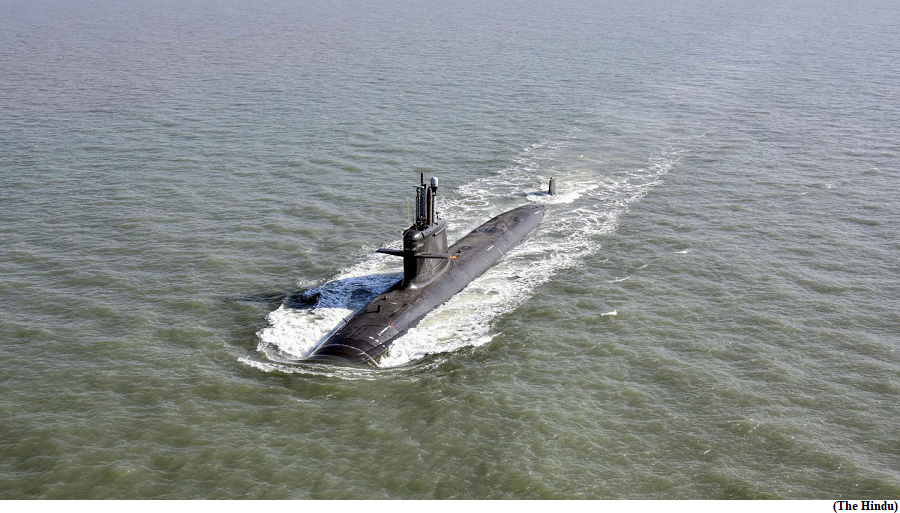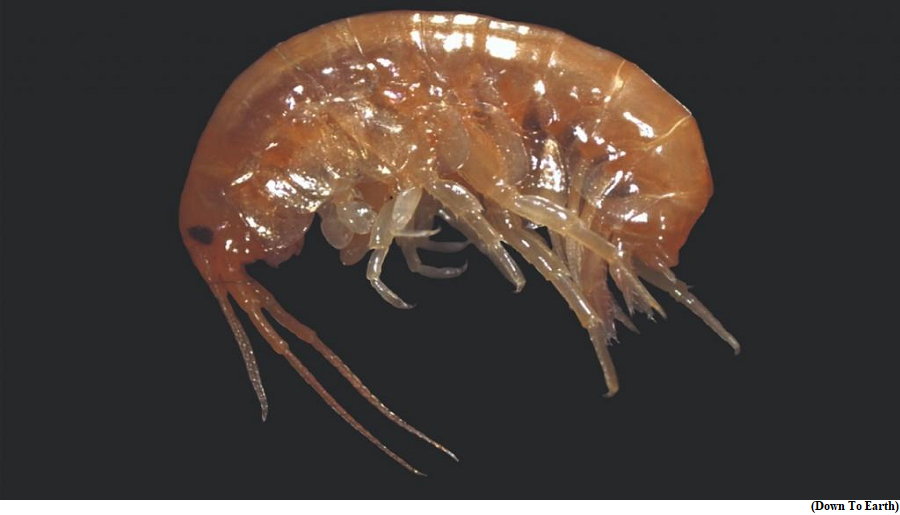Torpedoes, refueller aircraft in new deals cleared by DAC (GS Paper 3, Defence)

Why in news?
- The Defence Acquisition Council (DAC) recently accorded Acceptance of Necessity (AoN), the first step in the procurement process, for proposals worth ₹84,560 crore.
Key Highlights:
- The proposals include some long-pending deals such as for heavy weight torpedoes (HWT) for the Navy’s Scorpene-class submarines and flight refueller aircraft (FRA) for the Indian Air Force (IAF).
- Other major deals include medium range maritime reconnaissance and multi-mission maritime aircraft for the Navy and the Coast Guard, new generation anti-tank mines, air defence tactical control radar, and software-defined radios.
- To keep the Indian naval ships one step ahead of the threats posed by the adversaries, the AoN under Buy (Indian) category has been accorded for procurement of active-towed array sonar having capabilities to operate at low frequencies and various depths for long-range detections of adversary submarines.
- The AoN has also been accorded for procurement of HWT for enhancing the attacking capabilities of Kalvari class submarines.
DAP 2020:
- The procurement of a new generation of anti-tank mines having seismic sensors and the provision of remote deactivation with additional safety features has been approved under Buy (Indigenously Designed, Developed and Manufactured category of Defence Acquisition Procedure (DAP) 2020.
- The DAC has approved amendments in the DAP 2020 with respect to benchmarking and cost computation, payment schedule and procurement quantity.
- The DAC also cleared the AoN for sustainment support through repair replenishment for the 24 MH-60R multi-role helicopters procured by the Navy from the U.S. under the foreign military sale route.
Coaching centres can’t use misleading ads, draft guidelines
(GS Paper 2, Education)
Why in news?
- The Central Consumer Protection Authority (CCPA), an arm of the Union Consumer Affairs Ministry, has released draft guidelines for the “Prevention of misleading advertisement in coaching sector”, which bring such offences under the radar of the Consumer Protection Act.
- The CCPA has invited public comments on the three-page guidelines.

Details:
- The draft Guidelines for ‘Prevention of Misleading Advertisement in Coaching Sector’ have been framed after detailed deliberations with all stakeholders including coaching institutes, law firms, Government and Voluntary Consumer Organizations (VCO’s) and are now being put up for public consultation. Proposed Guidelines shall be issued under section 18 (2) (l) of the Consumer Protection Act 2019.
- The draft guidelines define “Coaching” as tuition, instructions or academic support or learning programme or guidance provided by any person. Under the Guidelines, conditions for misleading advertisement have been laid out.
Key Guidelines:
Any person who engage in coaching shall be considered to be engage in a misleading advertisement if it employs any of the following practices –
- Conceal important information related to name of the course (whether free or paid) & duration of course opted by successful candidate or any other important information which can influence a consumer's decision to choose their services.
- Make false claims regarding success rates, number of selections, or rankings of students in any competitive exam without providing verifiable evidence.
- Falsely represent that students' success is solely attributable to the coaching, without acknowledging the individual efforts of the students. Clearly state the extent of the coaching involvement in their success.
- Create false sense of urgency or fear of missing out that may heighten anxieties amongst students, or parents.
- Any other practices that may mislead consumers or subvert consumer autonomy and choice.
Way Forward:
- Guidelines would be made applicable to every person engaged in coaching. The objective of the Guidelines is to protect consumers from misleading advertisements in coaching sector.
- Misleading advertisement by coaching sector will be governed as per Consumer Protection Act, 2019 and the proposed guidelines will bring clarity to the stakeholders and protect consumer interests.
Researchers find new crustacean in Odisha’s Chilika lagoon
(GS Paper 3, Environment)
Why in news?
- Researchers at Odisha’s Berhampur University have discovered a new species of marine amphipod, a shrimp-like crustacea of genus Parhyale from the state’s Chilika Lake, Asia’s biggest brackish water lagoon on India’s east coast.
- The new species has been named Parhyale odian after Odisha’s native language, Odia, as the species was collected there.

Details:
- The present contribution has added one more species to the genus Parhyale, raising the global species number in the group to 16.
- The researchers collected at least four specimens of the species from the intertidal region of the Chilika lagoon at Barkul in Odisha’s Ganjam district, along with the seaweed Gracilaria.
- The marine amphipod was separated from other seaweeds for the study.
Key features:
- The new species is brown in colour and around eight millimetres in length. It has 13 pairs of legs. The first pair of legs is used for capturing prey and feeding.
- The newly discovered Parhyale odian differs from all other 15 species by having a stout robust seta, a spine-like structure on the surface of the propodus of the male gnathopod (first pair of legs).
- The genus Parhyale was first reported by Stebbing in 1899 from the Virgin Islands. The genus is represented by 15 species globally, occupying both marine and brackish water environments.
- The genus is cosmopolitan, distributed in intertidal and littoral environments along tropical and warm temperate regions.
- They are mostly found underneath stones with attached vegetation and also in the burrows of isopods.
Role of Amphipods:
- Amphipods are a significant group in the marine ecosystem and play a vital role in the marine food chain. They also serve as indicators for studying the impact of climate change and health of coastal ecosystems, he said.
- Further research will delve deeper into understanding the specific ecological roles of amphipods in coastal and marine environments.




